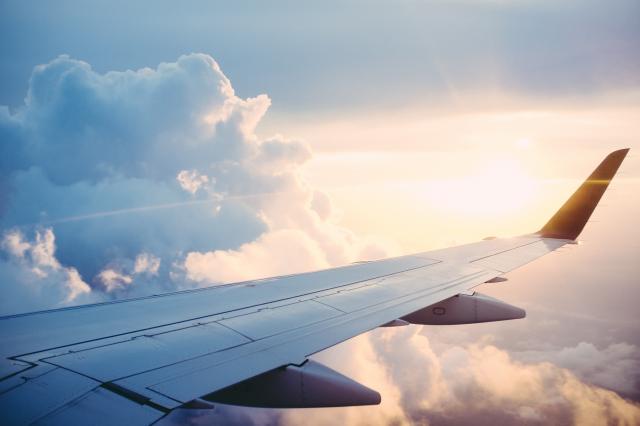This is the time of the year when all Australia seems to be on the move. Visit any major airport and you will see scenes of incredible activity, indeed often chaos.
Many are choosing to spend Christmas away from family and friends, preferring to be shoehorned into ever shrinking airline seats to travel for hours and hours to sub zero temperatures in Europe or to other destinations. Today many young make multiple trips not just to Europe but increasingly to Asia and places like Bali. Another consideration is that travel to such places is often cheaper than within Australia.
Why, then does it seem like everyone is totally obsessed with travel these days, even more so than centuries or even decades ago? And if you want to feel out of place just tell your friends you don’t want to travel. You’ll find yourself out of the loop of conversations around shared travel experiences and looked on as some oddity. It seems that to experience real life is to experience it somewhere else.
Australians have long had a romance with overseas travel. Earlier with a population of predominantly British heritage it was the pull of visiting the mother country. Added to that was the cultural cringe: the belief that our home grown culture was second rate. Robert Hughes, Germaine Greer, Christina Stead, Peter Porter, Clive James, to name just a few, all fled the country. Interestingly, Gerald Murnane, recently shortlisted for the Nobel Prize for Literature, stayed put; in fact never straying far from his home in Victoria.
Travel in the past was for the wealthy The Grand Tour was the principally 17th- to early 19th-century custom of a traditional trip through Europe, with Italy as a key destination, undertaken mostly by upper-class young European men of sufficient means and rank (typically accompanied by a tutor or family member). The aim was to immerse yourself in the arts and culture, particularly classical art. A kind of finishing school.
The aims of modern travellers are not as lofty and educative as those in the 18th century, but more pleasure seeking. Travel has been commodified into another consumer product, namely tourism. Cheap air travel is now within the means of ordinary people and not just the very wealthy. Cruising has added a new dimension particularly for the more mature.
So what are the benefits of travelling, particularly for those who do so incessantly, almost obsessively? It may come as a surprise that there is a recognised syndrome for such people: Dromamania which is clinically described as having an uncontrollable urge to constantly travel, often putting at risk jobs, studies and relationships. One could also argue that people obsessed with travel are conceding that they don’t have anything actually worth doing or creating. You don’t create while on the move, you create when you stay in one place
It has been said that travel broadens the mind and fosters tolerance. Looking at the world today this is questionable, particularly for those who travel on curated packages which have clearly defined itineraries designed to not expose travellers to realities.
Modern philosopher Alain de Boton in On Travel talks about the relationship between the anticipation and the reality of travel by drawing on the1884 novel by JK Huysman, A Rebours where the hero the aristocratic, reclusive Duc de Esseintes who having read Dickens had a sudden mad desire to visit London. While having time to spare before his train he visits and English Bookshop, buys a travel book about London eats at an English tavern and talks to some English he meets. By the time his train is due, he is overcome by a feeling of lassitude and comes to the conclusion it’s all too hard. And satisfied with his day in Paris he retreats back to his villa, preferring to travel in his imagination.
American poet Elizabeth Bishop in her poem, Questions of Travel poses the question:
‘Is it lack of imagination that makes us come
to imagined places, not just stay at home?
Or could Pascal have been not entirely right
about just sitting quietly in one’s room?’
Now that we understand the environmental impact of flying perhaps it’s time to reassess the need to fly so often. Cruising too has long been associated with problems of disposing of waste ballast water and other waste products. Add to this that many overvisited destinations are trying to limit tourist numbers not just to protect sensitive environments but also to safeguard their culture.
Some argue that the surge in travelling is evidence of a restless society always looking elsewhere to fill empty lives. The poem Consolations by American Billy Collins celebrates the time we spend at home and encourages us to appreciate the time not travelling as much as our time travelling
Consolation
How agreeable it is not to be touring Italy this summer,
wandering her cities and ascending her torrid hilltowns.
How much better to cruise these local, familiar streets,
fully grasping the meaning of every roadsign and billboard
and all the sudden hand gestures of my compatriots.
There are no abbeys here, no crumbling frescoes or famous
domes and there is no need to memorize a succession
of kings or tour the dripping corners of a dungeon.
No need to stand around a sarcophagus, see Napoleon’s
little bed on Elba, or view the bones of a saint under glass.
How much better to command the simple precinct of home
than be dwarfed by pillar, arch, and basilica.
Why hide my head in phrase books and wrinkled maps?
Why feed scenery into a hungry, one-eyes camera
eager to eat the world one monument at a time?
Instead of slouching in a café ignorant of the word for ice,
I will head down to the coffee shop and the waitress
known as Dot. I will slide into the flow of the morning
paper, all language barriers down,
rivers of idiom running freely, eggs over easy on the way.
And after breakfast, I will not have to find someone
willing to photograph me with my arm around the owner.
I will not puzzle over the bill or record in a journal
what I had to eat and how the sun came in the window.
It is enough to climb back into the car
as if it were the great car of English itself
and sounding my loud vernacular horn, speed off
down a road that will never lead to Rome, not even Bologna.







